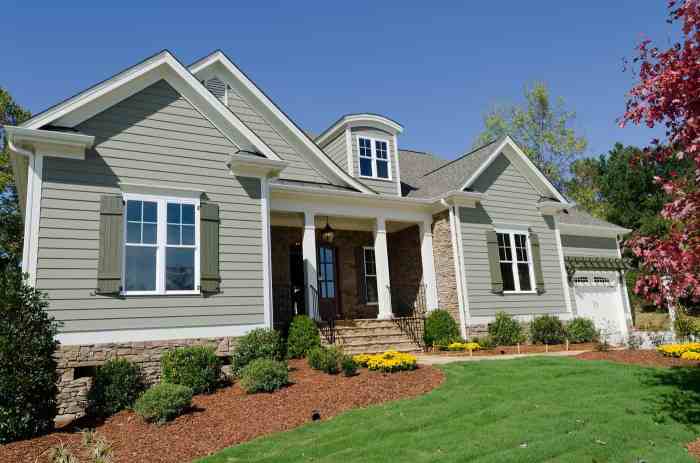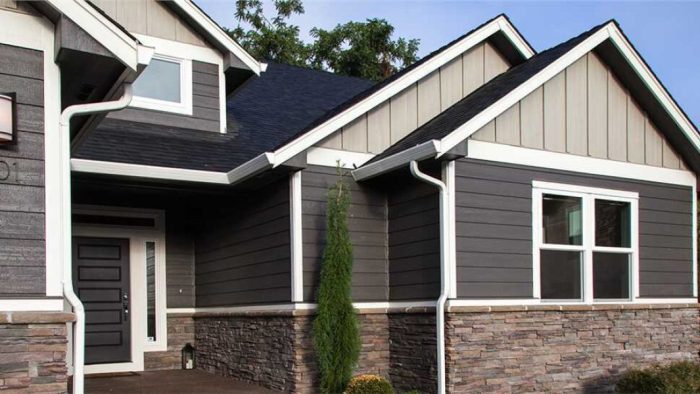Finding the Best Siding Contractors Near Me
Exploring the world of siding contractors near me, this introduction aims to provide a captivating glimpse into the realm of professional siding services. From the importance of hiring experts to the different types of siding materials available, embark on this informative journey to enhance your knowledge.
Overview of Siding Contractors
Siding contractors are professionals who specialize in the installation, repair, and maintenance of exterior siding on residential and commercial buildings. They play a crucial role in ensuring that the exterior of a building is not only aesthetically pleasing but also well-protected from the elements.
Importance of Hiring Professional Siding Contractors
When it comes to siding installation or repair, hiring professional siding contractors is essential to ensure the job is done correctly and efficiently. Professionals have the expertise, experience, and tools necessary to handle any siding project with precision and quality.
Typical Services Offered by Siding Contractors
- Installation of various types of siding materials such as vinyl, wood, fiber cement, and metal.
- Repair and replacement of damaged siding panels.
- Inspection and maintenance to prevent issues such as water damage and mold growth.
- Customization options to enhance the curb appeal and value of the property.
Benefits of Hiring Siding Contractors versus DIY Siding Projects
While some homeowners may consider taking on siding projects themselves, hiring professional siding contractors offers several advantages:
- Quality Workmanship: Professionals have the skills and experience to ensure a high-quality finish.
- Time and Cost Efficiency: Hiring contractors can save time and money in the long run, avoiding costly mistakes and rework.
- Warranty and Guarantee: Most contractors offer warranties on their work, providing peace of mind for homeowners.
- Safety: Siding work can be dangerous, and professionals are trained to handle it safely and effectively.
Finding Siding Contractors Near Me
Finding a reputable siding contractor in your area is essential to ensure quality work on your home. Here are some tips on how to find the right siding contractor for your needs:
Searching for Siding Contractors
- Start by asking friends, family, and neighbors for recommendations. Word-of-mouth referrals are often reliable.
- Use online resources such as review websites, social media platforms, and the Better Business Bureau to find highly-rated siding contractors in your area.
- Check local directories and home improvement magazines for listings of siding contractors near you.
Reading Reviews and Checking References
- Read online reviews and testimonials from previous clients to get an idea of the contractor’s reputation and quality of work.
- Ask the contractor for references and follow up with past clients to inquire about their experience and satisfaction with the work done.
Contacting and Vetting Siding Contractors
- Contact multiple siding contractors for quotes and estimates. Compare pricing, services offered, and timelines for completing the project.
- Ask each contractor about their experience, licensing, insurance, and warranties for the work they provide.
- Request to see samples of their previous work or visit completed projects to assess the quality of their craftsmanship.
Factors to Consider When Choosing a Siding Contractor
- Ensure the contractor is licensed, insured, and bonded to protect yourself and your property in case of accidents or damages.
- Choose a contractor with experience in the type of siding material you want for your home, whether it’s vinyl, wood, fiber cement, or metal.
- Look for contractors who offer warranties on their workmanship and the materials used, providing you with peace of mind and protection against defects.
Types of Siding Materials
When it comes to siding materials, there are several options available to homeowners. Each type of siding material comes with its own set of benefits and considerations. Let’s explore some common siding materials used by contractors.
Vinyl Siding
Vinyl siding is one of the most popular choices due to its affordability and low maintenance requirements. It is durable, resistant to rot and insects, and comes in a variety of colors and styles. However, it may crack or fade over time, requiring replacement.
Fiber Cement Siding
Fiber cement siding is a versatile option that mimics the look of wood or masonry without the high maintenance. It is durable, fire-resistant, and can withstand harsh weather conditions. While it is more expensive than vinyl, it offers long-term value.
Wood Siding
Wood siding provides a classic, natural look to homes and is available in various types such as cedar, pine, and redwood. It requires regular maintenance such as staining or painting to prevent rot and pest infestations. Wood siding gives a warm and traditional aesthetic appeal to homes.
Aluminum Siding
Aluminum siding is lightweight, durable, and resistant to fire and insects. It can be painted in different colors and styles to suit the homeowner’s preferences. However, it may dent easily and require repainting over time.
Stone Veneer Siding
Stone veneer siding offers a luxurious and elegant appearance to homes, mimicking the look of natural stone. It is durable, weather-resistant, and adds value to the property. However, it is one of the more expensive siding options available.
Eco-Friendly Options
For those looking for environmentally friendly siding options, materials like recycled wood, bamboo, and reclaimed metal are available. These materials not only reduce environmental impact but also provide a unique and sustainable look to homes.
Siding Installation Process

When it comes to siding installation, there are several key steps that need to be followed to ensure a successful project. Proper preparation is crucial in order to avoid any complications during the installation process. Here, we will discuss the typical steps involved in siding installation, the importance of preparation, tips for a smooth installation, and common challenges faced.
Typical Steps in Siding Installation
- 1. Inspection and Preparation: Before starting the installation, it is important to inspect the existing siding and prepare the area by cleaning and making any necessary repairs.
- 2. Siding Material Selection: Choose the appropriate siding material based on your preferences and budget.
- 3. Measurement and Cutting: Accurately measure the dimensions of the area to be covered and cut the siding panels accordingly.
- 4. Installation of Weatherproofing Barrier: Install a weatherproofing barrier to protect the underlying structure from moisture.
- 5. Siding Installation: Begin installing the siding panels, starting from the bottom and working your way up, ensuring proper alignment and spacing.
- 6. Finishing Touches: Complete the installation by adding trim, caulking joints, and painting or sealing the siding as needed.
Importance of Proper Preparation
Proper preparation before siding installation is essential to ensure a smooth and successful project. It helps identify any potential issues beforehand and allows for proper planning and execution of the installation process.
Tips for a Smooth Siding Installation
- 1. Hire a Professional: Consider hiring a professional siding contractor for expert installation.
- 2. Follow Manufacturer Guidelines: Adhere to the manufacturer’s guidelines for installation to ensure proper fitting and performance of the siding material.
- 3. Weather Considerations: Install siding during dry weather conditions to prevent moisture-related issues.
- 4. Quality Materials: Use high-quality siding materials to ensure durability and longevity.
Common Challenges and Solutions
- 1. Warping or Buckling: Ensure proper installation techniques are followed to prevent warping or buckling of siding panels.
- 2. Moisture Damage: Address any moisture issues before installation and use weatherproofing barriers to protect the structure.
- 3. Incorrect Measurements: Double-check measurements to avoid errors that can lead to misaligned or ill-fitting siding.
- 4. Lack of Maintenance: Regularly inspect and maintain the siding to prevent damage and prolong its lifespan.
Final Summary

Wrapping up our discussion on siding contractors near me, we have delved into the essential aspects of finding the right professionals for your siding needs. Whether you’re considering an installation project or simply seeking maintenance services, make informed decisions to elevate your property’s aesthetics and functionality.
Q&A
What services do siding contractors offer?
Siding contractors typically provide installation, repair, and maintenance services for various types of siding materials.
How can I find reputable siding contractors near me?
To find reputable siding contractors in your area, consider asking for recommendations from friends, checking online reviews, and verifying their credentials before hiring.
What are the common types of siding materials used by contractors?
Common siding materials used by contractors include vinyl, wood, fiber cement, and metal.
What are the factors to consider when choosing a siding contractor?
When choosing a siding contractor, consider their experience, reputation, pricing, warranty offerings, and the quality of their work.
How important is proper preparation before siding installation?
Proper preparation before siding installation is crucial to ensure the project runs smoothly and that the final result meets your expectations.




